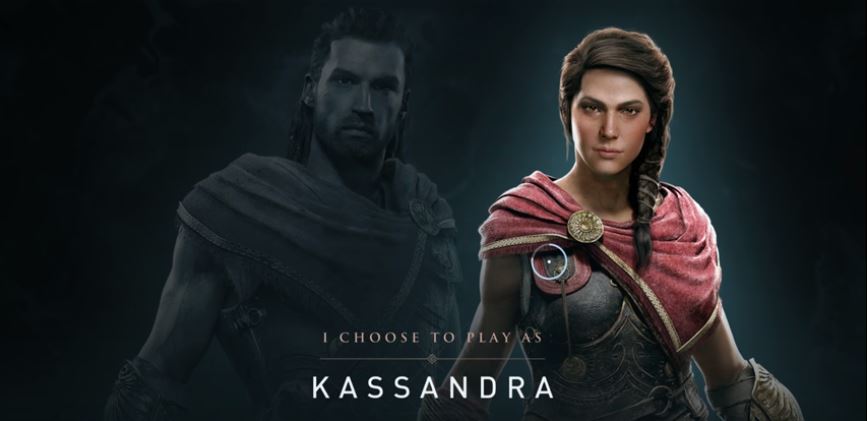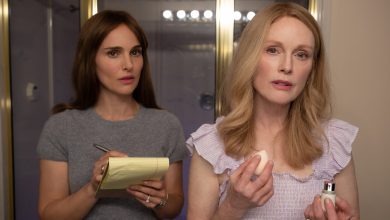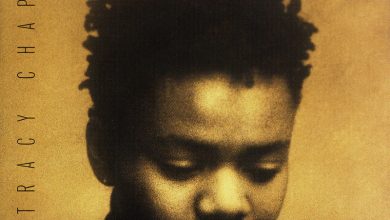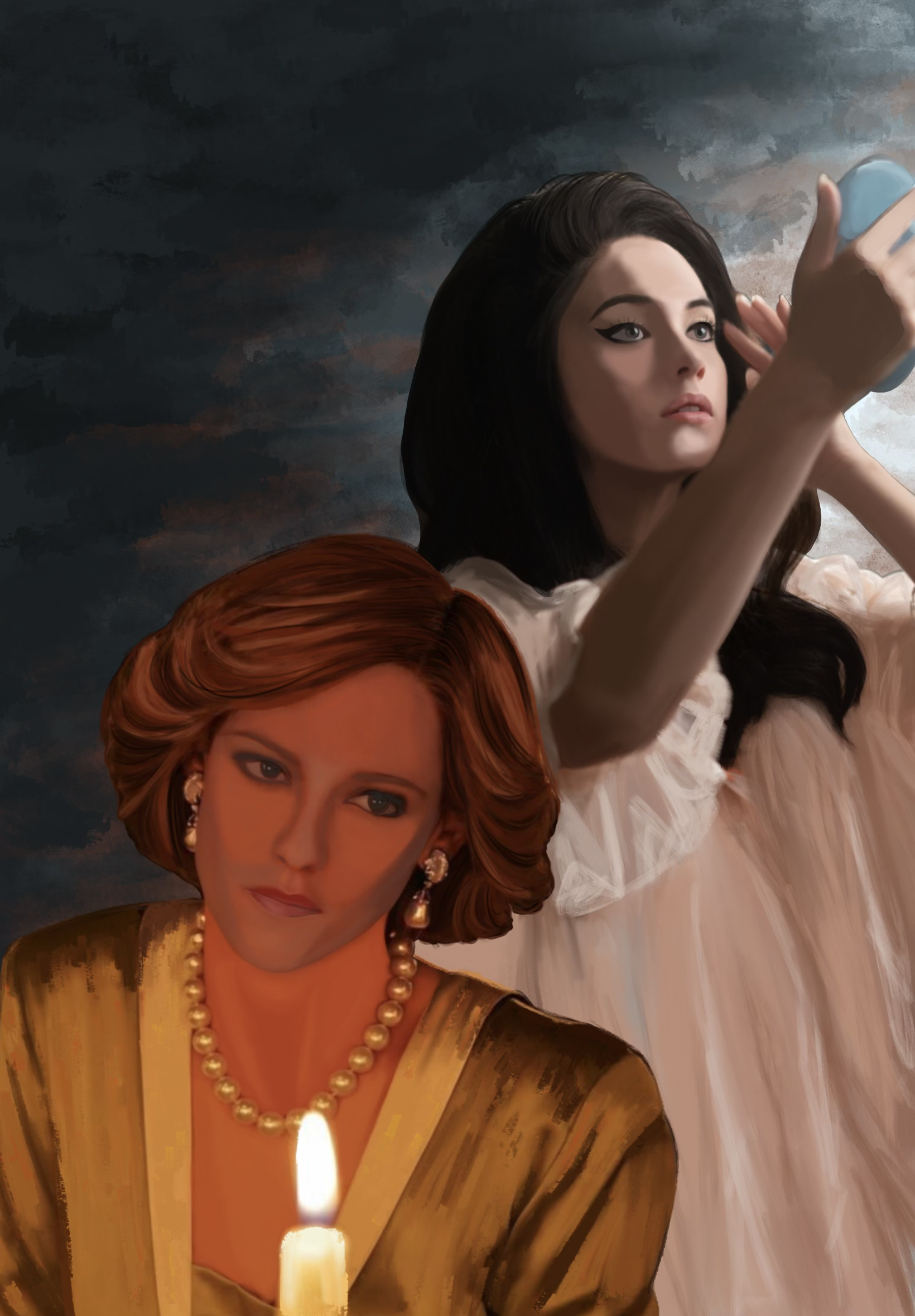‘Assassin’s Creed’ and The Importance of A Female Odyssey

Image courtesy of YouTube./ CC BY-NC 2.0.
Since its release, “Assassin’s Creed Odyssey” has received glowing reviews, multiple award nominations, and considerable attention all around from online platforms for things like its romance options and its protagonist. Yes, I said ‘protagonist,’ despite the game giving the player two options: a female protagonist, Kassandra, and a male protagonist, Alexios. Why? Because most game outlets talk about Kassandra over Alexios, praising her as the more compelling choice with the better voice performance, one which has earned Melissanthi Mahut, Kassandra’s voice actress, a nomination from the 2018 Game Awards.
Despite the immense attention she has received post-release, the game’s pre-release marketing did not focus on Kassandra, instead fixating on Alexios as the main protagonist. While Ubisoft later announced reversible cover art for the game’s cases that can feature either protagonist, Alexios served as the first and main figure for the game in this arena, and unless you buy a physical copy of the game, you will not have this option. The game’s world premiere trailer, which currently has over 4 million views and is the most seen of the video marketing, features only Alexios without any sort of mention of Kassandra. The same goes for the Live Action TV spot, the humorous “Alexa Meets Alexios” video, and the Gameplay TV Spot. The video featuring Kassandra that has the highest view count on YouTube is the Gameplay Walkthrough from 2018’s E3, standing currently at over 1 million views.
The distinct choice to place Kassandra in the Gameplay Walkthrough video and not the others seems rooted in the fact that the other, non-Kassandra videos are more likely to appear on television. Unless you go on YouTube, find this eight minutes of gameplay, and sit through the entire thing, you will not see Kassandra fully in action as a potential protagonist choice. The shorter, more edited format of the other trailers allows them to be more digestible to a casual viewer and be seen by a vast public during commercial breaks. With this, Ubisoft wanted to portray a narrative for the public that this game, like the majority of the “Assassin’s Creed” games before it, will have a male protagonist and be a male-centered story.
This deeply contrasts with the game’s official novelization, written by Gordon Doherty, where Kassandra is the official canon hero. From this, Ubisoft appears to know that Kassandra is more compelling than Alexios but not enough to overcome the stigma against women in the game industry, a sentiment reflected in their own past controversial comments on the supposed ‘difficulties’ in animating female characters. This practice perpetuates the public perception that all gamers are male and that nobody wants to play as a female protagonist.
This whole situation is extremely similar to the marketing of Bioware’s “Mass Effect” trilogy. The male version of the protagonist Commander Shepard, sometimes referred to as ‘ManShep,’ was used on the cover art for all three games, with the female Shepard, known as ‘FemShep,’ only included as part of a reversible cover for the third game. All three games’ launch trailers depict ManShep as the sole protagonist. Even beyond the marketing, further similarities are present in the voice acting. Many an internet debate has been sparked over whether ManShep or FemShep has the better voice. As with “Assassin’s Creed Odyssey,” more people seem to prefer Jennifer Hale’s FemShep to Mark Meer’s ManShep.
All of this points to the fact that some game developers have not changed their attitudes since the release of “Mass Effect” and continue to view gaming as a male-dominated space with no room for female players and no interest in female protagonists. The problem isn’t necessarily that Kassandra or FemShep need to be the only protagonists of their games. It’s that neither Ubisoft nor Bioware truly believed in their female heroes and thus excluded them from their fair share in the marketing.
Now, with all that said, I want to also make the case for why, beyond the voice performance, you should play as Kassandra. In my opinion, Kassandra’s mere presence provides a much more nuanced and critical take to the game’s events than when playing as Alexios. Nothing changes on the surface between the two protagonists; everything is exactly the same, from critical story moments to romance options to the dialogue itself. Most non-player characters (NPCs) refer to both protagonists as the ‘misthios,’ a Greek word meaning ‘mercenary.’ So, if nothing really changes aside from the voice acting and the character’s gender, what makes Kassandra so particularly special?
Because of the ancient Greek setting, choosing to play as Kassandra in “Assassin’s Creed Odyssey” lends the game’s narrative to a particular critique of gender. Most popular Greek myths known today are centered around male heroes. Hercules, Achilles, Theseus, Orpheus, Perseus, Odysseus – these are the legendary men people often remember from these tales. They are the basis on which society has defined what a ‘hero’ is. These myths also tend to render female characters as passive (Orpheus trying to save Eurydice) or monstrous (Perseus slaying Medusa). Even popular Greek legends without male heroes, like the abduction of Persephone to the underworld, keep female characters in passive roles within their own stories.
Kassandra’s specific female gaze deconstructs this typical trope of the hero being inherently male in Greek myth. All of her actions and words are essentially the same as Alexios, but being a woman changes how one might view her encounters throughout the game. For example, one defining moment of Kassandra’s past is when her Spartan father threw first her baby brother and then a young version of herself off a cliff, simply because the Oracle advised him to do so for Sparta. Her mother is crying and pleading the entire time for him to not listen to this and to not hurt their children, but he pays her clear anguish no mind. The exact same scenario happens with Alexios, with him as the older sibling this time who has a baby sister. The violent masculinity of this event does not come across as powerfully and does not feel as heavily criticized through Alexios’ eyes as through Kassandra’s. Her female perspective transforms this moment from a plot point to a major act of gendered violence against both her mother and herself. It also ensures that, despite this violence, she retains some agency in contrast to the helpless baby sister from Alexios’ story.
Furthermore, interactions with other female characters come off in a different way. One impacted character is Phoibe, a young girl on the island of Kephallonia (a location with multiple spellings, using this one in the game). at the start of the game, admires either ‘misthios’ character and wants to grow up and become like them. By playing as Kassandra, Phoibe looks up to a female role model rather continuing the trend in video games of young women of having a male mentor, as is the case with “The Last of Us” and “BioShock Infinite.” Another small thing in the game is that, on various side quests, the ‘misthios’ character frequently performs tasks for women, particularly the ‘hetaerae,’ a term referring to sex workers in ancient Greece. Kassandra handling these missions herself, some of which involve dealing with dangerous male clients, provides a sense of female solidarity to these interactions, as well as destigmatizing the concept of sex work.
Deeper in the game, whether you play as Kassandra or Alexios, the person not chosen becomes the antagonist Deimos, the infant sibling of the ‘misthios’ character who was thrown from a cliff and then later discovered and raised by the Cult of Kosmos. Regardless of voice performance, I believe Alexios is the better choice to be Deimos because whoever is Deimos is taught by the cult to be angry and hyper-violent. Having Kassandra as the hero and Alexios as Deimos once again brings in some commentary on toxic masculinity to the game that otherwise isn’t there if the roles are reversed.
Overall, choosing to play as Kassandra in “Assassin’s Creed Odyssey” provides the game’s narrative with considerably greater depth and weight. So, Ubisoft’s decision to not represent her in much of their marketing seems even more foolish since it sells the game’s narrative short and makes it appear more hollow at first glance. Ubisoft and other game companies need to learn to trust their female characters’ ability to exist in franchises and an industry that is traditionally thought of as male-dominated.
One element from “Assassin’s Creed Odyssey” that I believe best embodies this point is Odessa, the earliest romance option the player can pursue in the game. Upon first meeting the ‘misthios’ character, she tells them that she is a descendant of the Greek hero Odysseus. Odessa expresses a desire to follow in her ancestor’s footsteps and experience a grand adventure of her own. Even if heroes and their journeys are typically imagined as male-centered, stories should not be afraid of breaking the mold and depicting women having their own odysseys.




